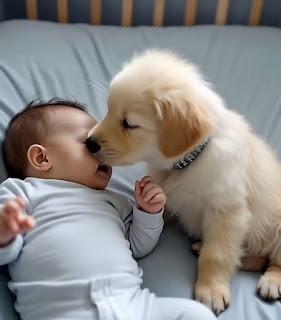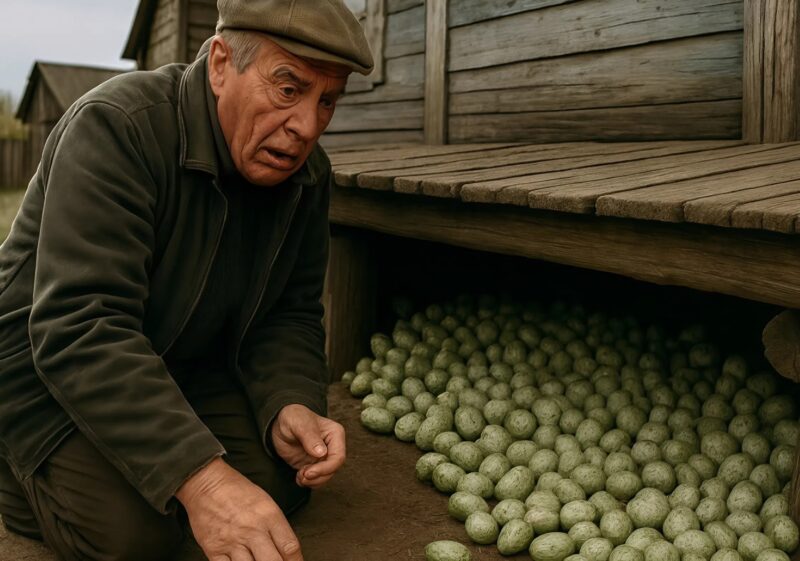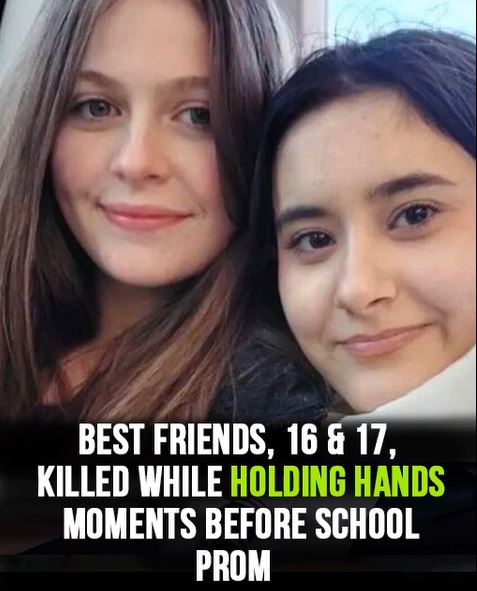The house felt hollow, filled with the kind of silence that makes your chest ache. Outside, storm clouds loomed, and the wind whispered against the windows. Somewhere far away, a dog barked. But inside, everything was still.
Then Max walked in.
The golden retriever puppy didn’t make a sound. He just stood there, head tilted, watching with eyes that seemed to understand too much. Then, without warning, he trotted straight to the crib.
“Max, no,” Sarah said softly, reaching for him.
But she was too late.
With a quiet hop, Max climbed into the crib—the one place no one else dared to go. He curled up beside the little boy inside, his small body pressed close, as if shielding him.
And in that moment, something shifted.
Noah had been born with a rare condition. Doctors told Sarah and Emil their son might never walk, talk, or even smile. At a year and a half, he hadn’t.
They tried everything—doctors, therapies, even trips to specialists overseas. Nothing worked. Noah barely moved. He stared at the ceiling, blinking sometimes. Once, Sarah thought she saw the ghost of a smile. But maybe it was just wishful thinking.
Max was an accident.
They’d never planned on getting a dog. But when Sarah’s sister called about a golden retriever puppy no one wanted, something made her say yes.
The second she saw him, her heart cracked open. He was small, soft, and a little unsure—just ten weeks old. But from the moment he came home, he was drawn to Noah. Not in a playful, puppy way, but like he knew something the rest of them didn’t.
At first, it was just sweet—Max sleeping by the crib, refusing to leave Noah’s side, whining if anyone took the baby away.
But that stormy night, when Max climbed into the crib, everything changed.
The next morning, Sarah heard something she hadn’t heard in months.
Laughter.
She thought it was the TV. Or maybe Emil had left a video on. But no—it was Noah. His laugh was rough, like a car engine starting after years of sitting unused. But it was real.
She ran into the room, her heart in her throat.
There he was—still small, still fragile—but moving. His tiny hands gripped Max’s fur while the puppy lay perfectly still, tail wagging gently, as if he knew exactly what he was doing.
Sarah called for Emil. They stood there, frozen, watching their son reach, grasp, and finally—connect.
The doctors called it a coincidence. “Involuntary reflexes,” they said. “Don’t expect too much.”
But then it kept happening.
The next day, Noah turned his head when Max barked.
Two weeks later, he was making sounds—not words, but noises, all for Max.
Emil filmed everything, sending clips to every specialist they knew. No one could explain it. No medical reason. Nothing logical.
But Sarah didn’t need logic.
She just watched her silent, distant little boy come alive, as if someone had flipped a switch inside him. And Max was always there, right beside him.
The moment that broke her completely came on a Sunday.
She had stepped out for coffee. When she came back, Noah was sitting up—not propped, not held—just sitting.
Max was next to him, his paws resting lightly on Noah’s back, steadying him.
“Noah,” she whispered.
And then—clear as day—he looked at her and said, “Mah.”
Not quite “Mama,” but close enough.
The coffee cup fell from her hands.
Now, six months later, Noah walks with braces. He talks in short phrases. He laughs every day. He calls Max “Mack,” and the dog responds like it’s the most important word in the world.
Therapists are stunned. Doctors call it “unexplained neurological progress triggered by emotional attachment.”
But Sarah doesn’t care about the terms.
She just knows her son is here now—really here—and it all started the day a little golden retriever climbed into his crib.
Sometimes, life gives us things science can’t explain. A moment. A bond. A reason to hope again.
Max didn’t heal Noah with miracles. But he gave him something no doctor ever could—a reason to wake up.
Never underestimate the quiet ones. Sometimes, they’re the ones who change everything.


